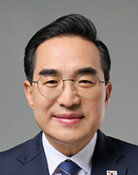[Focus] Problems with deductible system for small medical bills
[Focus] Problems with deductible system for small medical bills
Posted February. 01, 2001 12:14,
The envisioned deductible system for medical insurance is an incentive formula to reduce the use of clinics or hospitals by patients with mild diseases and to return part of medical insurance premiums to them.
The system is a desperate measure based on a judgment that the government is unable to be free from the chronic deficits in the finance of medical insurance.
The medical fees covered by the medical insurance increase by 18.5 percent on average annually, while the increase rate of insurance premiums and state subsidies remains at only 14.4 percent. Furthermore, the number of patients, particularly aged persons, using clinics and hospitals, is ever rising, making it difficult for the government to avoid the chronic deficits.
In 1999, the requests for the payment of medical fees for outpatients numbered a total of 263.31 million. Of them, those below 10,000 won accounted 18.7 percent, and 20,000 won 61 percent. The medical insurance covered mostly mild diseases such as colds.
If the payment from the medical insurance is reduced 10 percent, accounting for about 9 trillion won, the government will be able to cover the deficit of last year amounting to 1 trillion won. But the projected reform program is expected to trigger strong opposition from the people who frequent clinics or hospitals for their children¡¯s mild diseases, low-income people and aged persons.
The analysis that people will use clinics and hospitals less because they will have to pay small medical fees has not been verified at all. If the people are reluctant to see their doctors to save medical fees, an early diagnosis of serious diseases might be difficult, making mild diseases rather serious.
Theoretically, positive effects of expanding the category of insurance application to serious diseases such as cancer, ultrasound diagnosis or magnetic resonance imaging are expected in the event the expenditures from medical insurance finance are reduced thanks to the less frequent use of hospitals.
But it also might instigate patients to demand medical treatment of high costs like the ultrasound scans.
The medical savings account system seems to ensure a mathematical balance in that those who use hospitals more frequently will pay more than those who do not.
But there is criticism that the system runs counter to the original purpose of the medical insurance because high-income earners and healthy people help low-income people and weak and ailing people -- functioning as redistribution of income.
Foreign examples:
Singapore is the sole country in the world implementing a medical savings account (MSA) system. The Singaporean government makes it compulsory for its people to have MSAs to deposit 6 to 8 percent of their incomes into the accounts, from which the medical bills for illness, except serious diseases or those requiring long-term requirement, will be paid.
Song Sang-Keun songmoon@donga.com




![[단독]“거부도 못해” 요양병원 ‘콧줄 환자’ 8만명](https://dimg.donga.com/c/138/175/90/1/wps/NEWS/IMAGE/2026/03/02/133450041.2.jpg)


